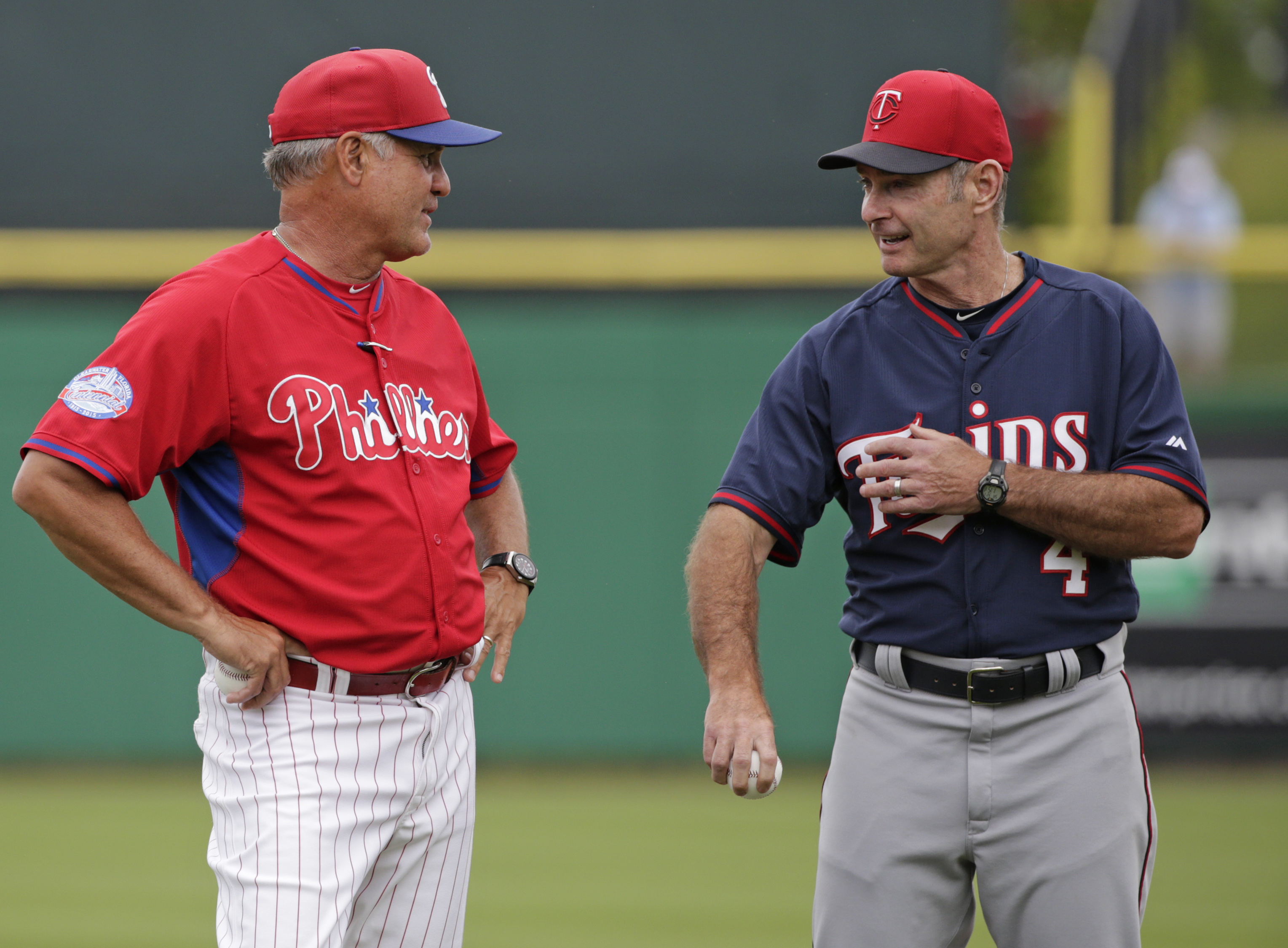If you're a Minnesota Twins fan, it's been either feast or famine over the last quarter century.
No in-between.
Over that period, the Twins faithful have either enjoyed long stretches where their team was battling for an American League Central title yearly OR they've endured prolonged droughts that saw the "Twinkies" just trying to avoid finishing in the division cellar annually.
This stuff-or-starve trend started back in 1991, when Minny captured the AL Central Crown and finished second the following campaign.
But then, beginning in 1993, Minnesota hit an eight-season skid that saw it finish last or next-to-last yearly.
From 2001 to 2010, however, the Twins rebounded to again become the cream of the AL Central crop, winning seven division titles and coming close in the seasons they didn't cop a crown.
Alas, over the last four years, the Twins have once more languished, finishing in the cellar three times and just one rung up from it the other season.
Last spring, then-manager Ron Gardenhire — one of just two Minnesota skippers over said extended period — explained the Twins peculiar streakiness to MAS.
"As a small market team, we don't compete with other clubs in free agency; we have to rely on our (farm) system," stated the personable Gardenhire.
"Sometimes you miss on your draft picks and your system gets beat up a little bit and you go through periods where it just doesn't work out."
"You just have to weather the storm as best you can," Ron continued. "And hope you don't get fired."
Which, unfortunately, is what happened to Gardenhire after last season's 70-92 log resulted in yet another last-place finish.
Enter St. Paul native and former Twins star Paul Molitor as Minnesota's new field general.
Molly, a Hall of Famer, acknowledged the necessity of once more satisfying the appetite of Twins followers.
"We have fans who have tried to stay optimistic and not be apathetic or angry," conceded Molitor. "We need to reach out to them.
"The Twins brand has been out there for a long time and we've gotten off that a little bit.
It's time to help rebuild that."
At 58, Molitor is the third-oldest MLB skipper. But he brings zero managerial experience to the table.
Twins brass is hoping Molitor's 21 years as an MLB player and his high baseball IQ will offset any lack of time spent filling out lineup cards.
In making their managerial switch, the Minnesota honchos — as many front offices are wont to do — went in the opposite direction in the personality department.
Gardenhire, though likable, was the fiery type who was not opposed to getting in an umpire's face — or a player's — if he felt the need to.
Not so for Molitor.
"I don't get overly frustrated," Molitor told MAS. "I like calm, consistency."
The man knows of consistency — in 1987 he put together the seventh-longest hitting streak in MLB history when he had a knock in 39 straight games (the longest skein since Pete Rose's 44-game streak in 1978).
"I don't think intimidation works very often," Molitor continued, "I'll stress accountability."
You can look for an old-school emphasis in the way the game itself is played.
"There's a right way to do things and if you don't emphasize fundamentals, you have to play that much better to overcome it," reasoned Paul.
With MLB run-scoring at its lowest since 1981 — 4.07 per contest last season — you can look for the Twins to use running as a way of adding offensive oomph.
"As the game has been cleaned up (of PEDs) and earned run averages have gone down, there has been a greater emphasis upon speed and stealing bases," offered Molitor, who pilfered 504 bags in his Hall of Fame career.
"Ninety feet — whether it's a steal or taking an extra base — isn't always a run but it certainly produces a better run- scoring opportunity."
Besides the inexperience thing, Paul also has to deal with the old wives' tale that says former great players don't make successful managers (example commonly used: Ted Williams).
Molitor accumulated 3,319 career hits (ninth-best all-time) and had a lifetime .306 batting average.
Getting his players to perform at a high level, though, is another matter.
Some pundits suggest the game came so easy to the great ones that when they become managers they have a hard time dealing with their players' inability to master the game as well as the now-skipper once did.
Not a problem for Molitor.
"(As an MLB coach) I've learned a little about teaching the game, about patience and repetition" says Molitor.
"AND," he emphasized, "remembering how difficult it was for ME day-in, day-out certainly helps."
But in the end, MAS feels, Molitor's success as a rookie manager will depend largely on how well his Twins players perform once their skip has put them in a position he feels gives them the best opportunity to succeed.
If Minnesota is to snap out of its most recent protracted funk, former All-Star and batting champ Joe Mauer will have to rebound from his off-season of a year ago (.277 average, four home runs).
Pitching help previously acquired, like starter Phil Hughes, must continue to develop.
And younger players like second baseman Brian Dozier (23 HRs in 2014) and third sacker Trevor Plouffe — team leader in RBIs with 80 — need to grow some also.
Plouffe concurs, telling MAS: "Every year you have to be better and be as consistent as possible."
"We're a team that knows we have to rely on pitching and defense and then score runs whenever possible.
"We've added some pieces (including productive vet outfielder Torii Hunter)," Trevor noted. "We want to get back on one of those Twins upswings.
"And that's what we plan on doing."
Minnesota faithful, put on your gorging bibs — just in case Plouffe's a seer.
Contact Man About Sports at: [email protected]



















With your current subscription plan you can comment on stories. However, before writing your first comment, please create a display name in the Profile section of your subscriber account page.